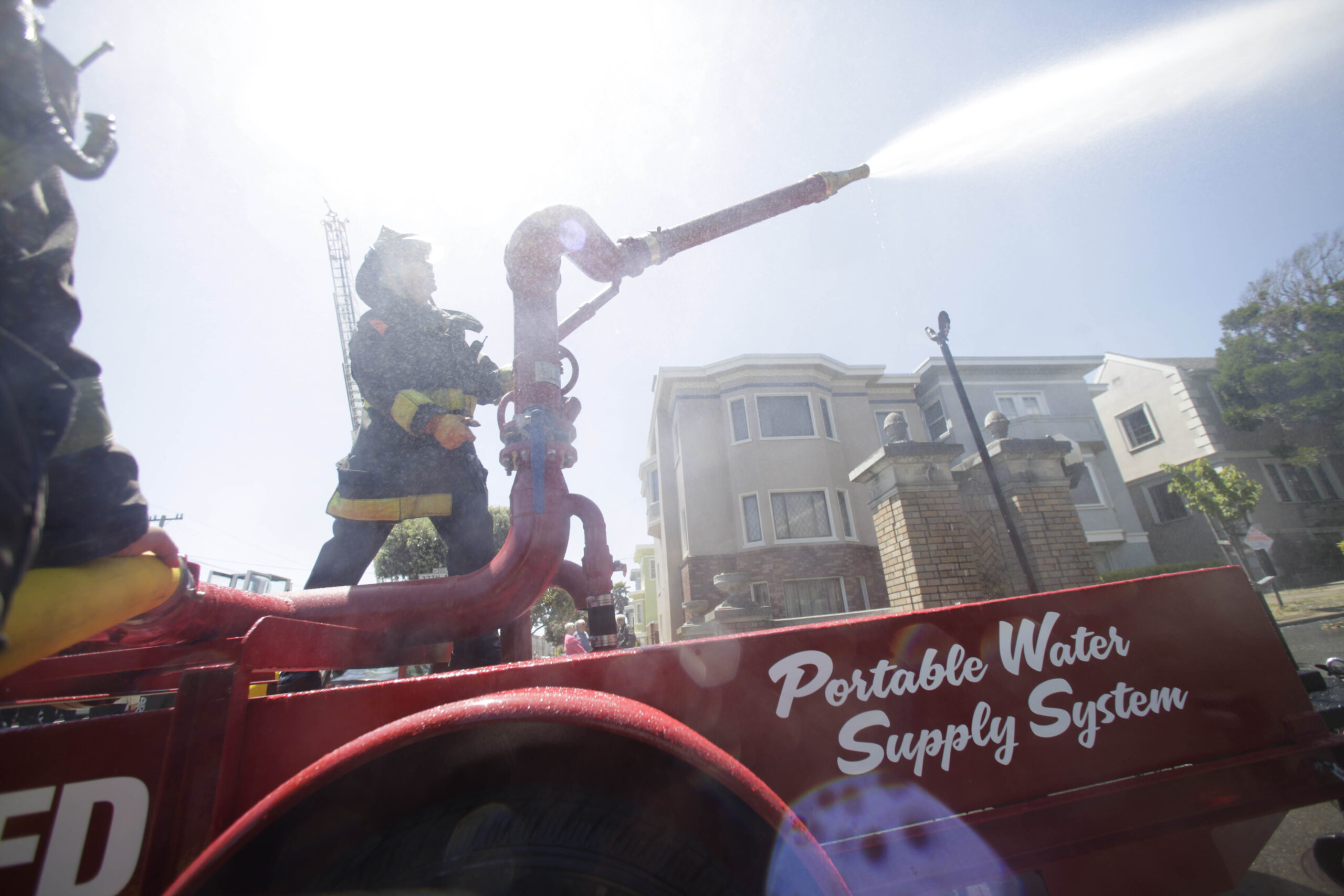Supervisors continue to ramp up their fall agenda as they weigh in on matters ranging from expanding a major firefighting asset to affordable housing and gas-powered leaf blowers at this week’s meeting. Wonks wanting the full kit and caboodle can check out the full agenda.
Autumn Leaves: No More (Polluting) Leaf Blowers
It comes as no surprise that new regulations on lawn equipment would come from District 7, where neighborhoods like St. Francis Wood and Sherwood Forest feature some of the city’s most well-manicured lawns.
Sponsored by Supervisor Myrna Melgar, the “Healthier, Cleaner, Quieter Communities Act” will ban use of gas-powered leaf blowers and other landscaping gear by city agencies starting in July 2024, and by everyone else in January 2026.
Melgar’s proposal also includes a buy-back program to encourage compliance with the new green ordinance. A good slogan for the program might well be “Help End The Pollution, and Be The Solution,” which has been used by SFPD and United Playaz for their gun buy-back programs in the past.
Expanding a Unique Firefighting Resource
San Francisco’s Emergency Firefighting Water System (EFWS), also referred to as the Auxiliary Water Supply System (AWSS), is a unique public safety asset reflecting lessons learned from the 1906 earthquake and fire. It incorporates 135 miles of high-pressure pipelines and hundreds of storage and pumping facilities. It also incorporates the many “brick circle” cisterns that you can see on streets in the central part of the city.
Those “brick circles” also reveal a problem: the system hasn’t expanded with the rest of the city. A 2019 Civil Grand Jury report noted that “large parts of the City, such as the outer Richmond, outer Sunset, and Bayview/Hunters Point, among others, do not have a high-pressure AWSS and are not nearly as well protected.”
Westside Supervisors Gordon Mar and Connie Chan sponsored a resolution urging the city’s Office of Resilience and Capital Planning to devise a financing plan for expanding the AWSS to those neighborhoods by year end.
“Urging” of course means the resolution is ultimately non-binding, and ORCP staff noted in a presentation to the Budget and Finance Committee last week that there’s already a lot on the city’s bond funding plate in a post-pandemic recovery.
Housing Projects Big and Small
Tuesday’s agenda also features two Committee of the Whole hearings to clear steps for two large development projects: Transbay Block 4 and the ParkMerced expansion.
One hearing is to approve amendments to the Block 4 redevelopment plan to increase height limits to 513 feet for towers, among other changes. Developer Hines Interests plans to add five more floors to its tower at 200 Main Street, adding 681 more dwelling units, of which 307 are inclusionary affordable housing.
The other hearing will likely approve easements for portions of streets in the Parkmerced Development Project area adjacent to the Block 3W portion of the expansion, developed by Maximus Real Estate Partners. Block 3W will provide 274 dwellings, of which 166 will be designated as replacement housing for current residents. Close to 900 units are planned for this initial phase of ParkMerced’s expansion.
Meanwhile, last week we reported on District 8 Supervisor Rafael Mandelman’s plans to resurrect his “fourplex” legislation, which Mayor London Breed vetoed in July. The new version will be considered Monday at the Land Use Committee.
Mandelman’s legislation would have rezoned most single-family-zoned lots to allow for more housing on them, but that might be matter of opinion in light of its final form: Breed vetoed the bill on the ground that it undermined state housing laws after Mandelman’s more density-adverse colleagues tacked on multiple caveats.
Supervisor Ahsha Safai is also looking to revive his own version of the legislation, which died in committee in April.
Click here for more on the “fourplex” bills.
The board will also be revisiting touchy police and political reform matters, including some exceptions to recently enacted rules on behested payments, and new rules for police allowing use of private surveillance camera content. The latter has been a long-running question at the board, given stiff pushback by privacy advocates to the expansion of police access to private cameras.
